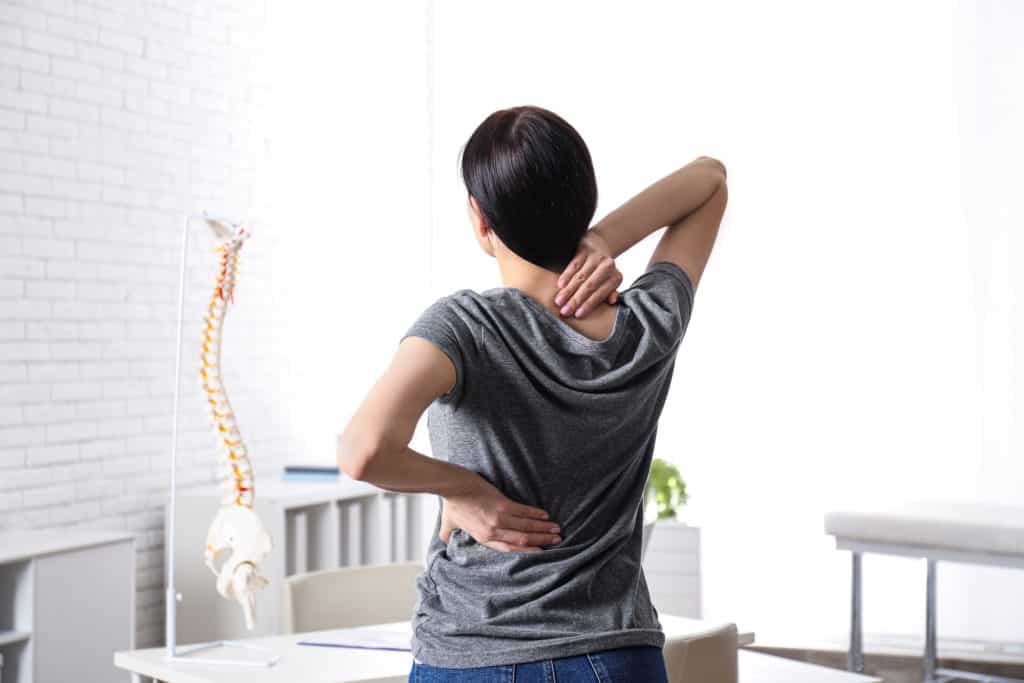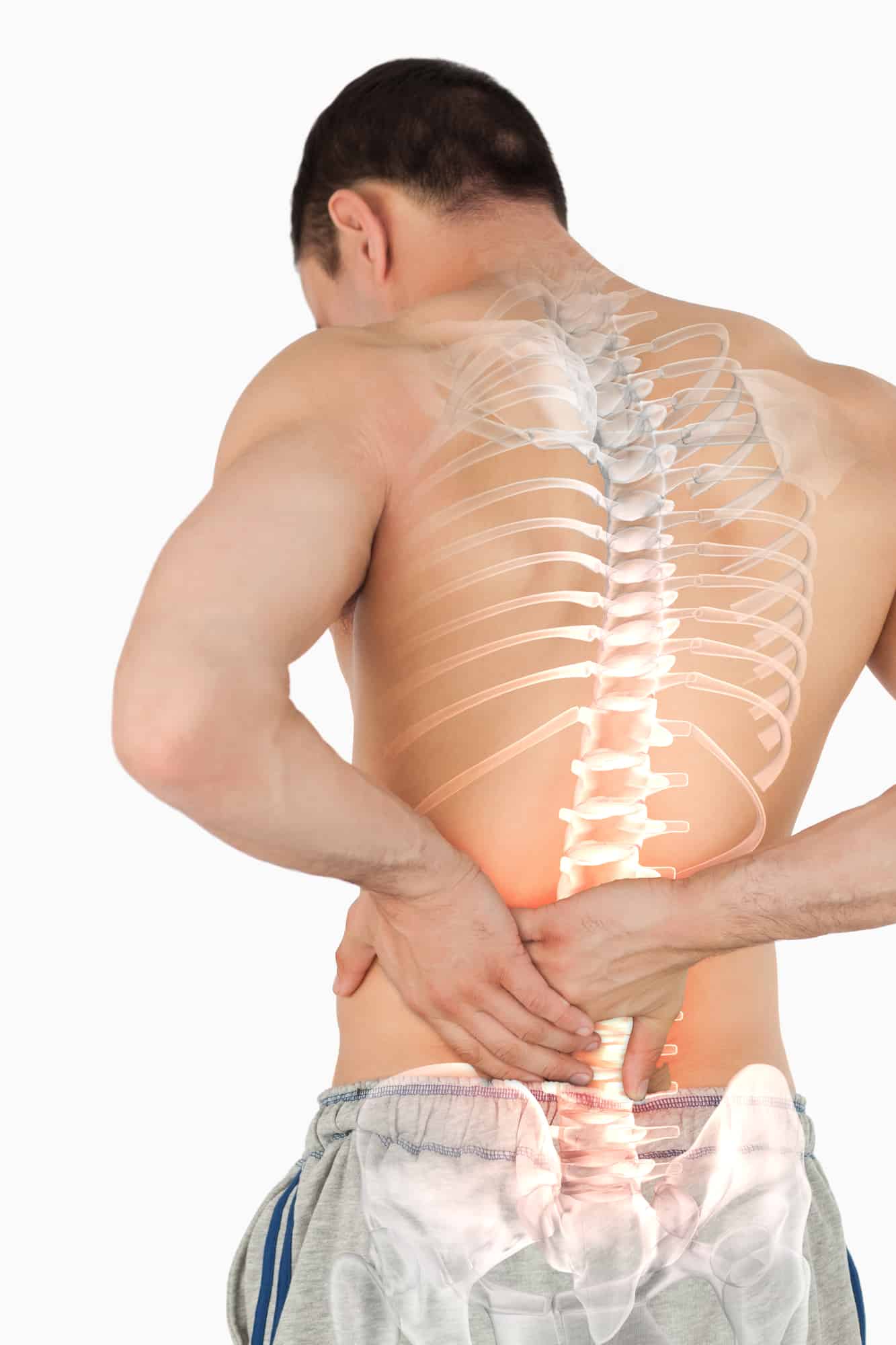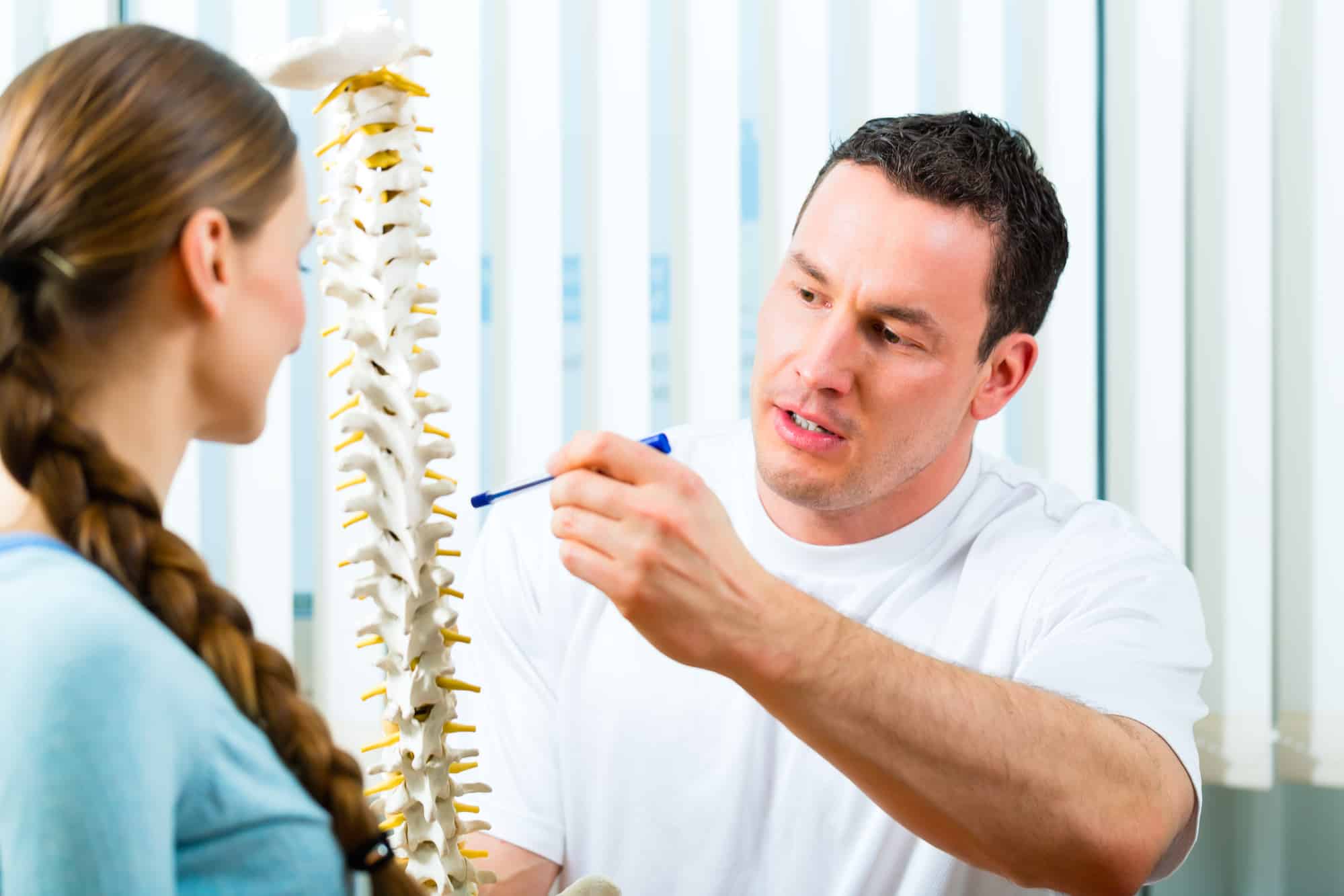
When you suffer from back pain, it can negatively affect your quality of life. Medical professionals often diagnose and do their best to help lessen discomfort. But what happens when they fail to find and fix the root cause?
What are you supposed to do when they say the pain is "chronic"?
That's usually when patients find us here at Release Works.
When they're no longer willing to put up with pain or pop pain pills for the rest of their lives, in most cases, we can quickly identify the root cause and get to work on undoing the effect of years of poor posture, chronic stress and tension, muscle weakness, old injuries and scar tissue that have impacted the health of your myofascial system and are contributing to your so-called “chronic” back pain.
More Blogs From Release Works
How Can I Improve My Posture To Reduce Joint Pain?
What To Expect After Myofascial Release
Mind and Matter: The Myofascial Solution
Do I Need To See A Doctor?

It’s important to remember that if you have a new onset of back pain that does not improve with rest and medication in a couple of days or you have any of the symptoms below, we recommend that you seek medical attention:
There are some obvious medical reasons why back pain may occur and become chronic, including:
When Would Back Pain Occur For Men & Women?

In women, radiating back can occur due to the following:
Fibroids in the uterus
Pregnancy
In men, radiating back pain may appear due to the following:
Any kind of torsion or testicular injury
However, it's important to point out that even if you have one of the medical conditions listed, it doesn't mean you can't do anything to improve your symptoms.
All these conditions are influenced by the health (or lack of health) of the myofascial system of your body.
This is the connective tissue system that runs throughout and encases your entire body. Poor myofascial health is readily evident in tight and restricted tissues, and is often described as “bound down”, “twisted”, “glued”, and “thickened”.
When we find the kinks in this tissue and release the restrictions, we reduce your pain and improve your quality of life. Yes, even in the face of underlying medical conditions, or when doctors say, "accept your fate."
We know that the number of people suffering from back pain at some stage of their life is extensive, with almost 2% of the US population unable to work productively due to back pain.
It is one of the most common reasons for disability in the workforce.
Frequently Asked Questions About Chronic Back Pain
Can I treat chronic back pain at home?
For the best results and to help you develop habits of myofascial self treatment to practice throughout your life, we recommend you book a consultation to come and see us about your back pain.
But if that's not an option for you right now, there are a variety of things that are commonly recommended. (Please note, that this is not our advice, but a repetition of what you have likely already heard or tried.)
Gentle stretching movements
Using heat/cold packs on the affected area
All-natural pain relieving balms
Getting regular massages
Strengthening the back muscles
Traction
If your back pain is acute and has come on suddenly after a minor accident or injury – like twisting awkwardly, use a cold compress pack for 15 minutes at a time, four to five times a day. Another option is switching between hot and cold packs to relieve inflammation and pain. You can take certain NSAIDs (under medical supervision) can be taken to reduce swelling and pain as well. You should also give your back time to heal with adequate rest for a quicker recovery by avoiding strenuous activity.
If you have tried this common advice and are still suffering with chronic back pain, it is likely that the cause has to do with restrictions and troubled myofascial tissue. No amount of stretching, traction, or hot/cold packs can make much difference without addressing underlying fascial restrictions. That being said, myofascial self treatment is something you can learn to do at home, and should do throughout your life on a daily basis.
How can I get sleep with chronic back pain?
Again, if back pain keeps you awake at night, we urge you to see us for help. Sleep is imperative for health and well-being. But to help reduce the symptoms of chronic back pain,you may want to avoid sleeping on your back as it can increase back pain.
That being said, the inability to sleep comfortably on your back, or in any other position, is a common indicator of myofascial restrictions affecting the ability of your spine to glide and settle in the joints.
If lying on your back is uncomfortable, it can help to place a pillow under the knees to elevate them. Or, if you’re still uncomfortable, switch to sleeping laterally on either side and place a pillow between the knees as a prop.
Is it possible to prevent back pain?
A better question would be, is it possible to prevent restrictions in the myofascial system that lead to excess strain and tension on muscles, ligaments, tendons, joints, and organs, that lead to twists and torsions in the body and ultimately back pain?
Yes, it is.
Addressing existing restrictions in the myofascial system of the body and developing a consistent habit of myofascial self treatment, practiced daily throughout your lifetime, is the best way we know to prevent back pain.
Other health habits commonly mentioned by doctors and medical professional might include some of the following:
However, be mindful that none of these are a substitute for a healthy, fluid, myofascial system. In addition, some things may be difficult or impossible to maintain without a healthy myofascial system.
Is it possible for back pain to resolve on its own?
It’s unlikely. In certain cases, the pain may dissipate on its own. Still, if it persists, it is best to seek medical assistance from a doctor or a Myofascial Release Therapist – especially if you’ve already been in pain for more than seven days.
What Causes Chronic Back Pain?

Perhaps you have heard that back pain is unavoidable as you age. That as you age you are at higher risk.
If you are here reading this, chances are good that you are not willing to accept this.
You may have been told you are at higher risk for chronic back pain if you are
Leading a sedentary lifestyle
Suffering from obesity
Have arthritis or cancer and/or other underlying medical conditions
A smoker or use tobacco products
Lifting weights with poor posture
Suffering from depression or anxiety
And, perhaps it is true that you have led a bit of a sedentary lifestyle, and subsequently been told that is the cause of your back pain.
But, perhaps you have also tried to be more active, only to find your back now hurts when you are, and your back hurts when you aren't.
Perhaps you carry a bit of extra weight and have been told that is the cause of your back pain. Only losing weight hasn't eased the back pain. Or the effort to lose weight through increased activity has only increased it.
There may be reasons why you are at higher risk of chronic back pain. However, it is important to consider factors that affect those reasons.
Do you lift weights with poor posture because you are sloppy and don’t know any better and that is causing you back pain?
Or do you lift weights with poor posture because there are distortions and torsions in the myofascial system of your body that make better posture impossible?
Either way, lifting weights with poor posture will put excess strain on your back and can lead to chronic back pain. But it often is not the cause. The same is true in many cases for arthritis, depression, and anxiety.
Allopathic medicine classifies back pain into different kinds based on its location. These are lower, upper, or middle back pain that can happen on the back's right, center, or left-hand side.
The intensity of back pain can vary in intensity, too – from mild to moderate to severe. It can be a dull throbbing pain or acute and sharp.
The pain can be local, e.g., in muscles, spine, or ligaments of the back. It may also be a radiating type of pain that travels to other body areas.
Finally, the duration may be acute, ranging from a few days to persistent or chronic pain lasting for months or even years.
Sometimes imaging is needed to rule out any serious underlying health conditions that might need medical intervention or surgery.
But when that has been ruled out, the standard western medicine approach is to call it "chronic," which really means "don't know," and send patients on their way with a prescription for pain meds.
The Best Way To Treat Chronic Back Pain

If you have been told that your back pain is chronic, don't be discouraged, we can help. Myofascial Release Therapy is one of the best ways to treat all types of chronic pain.
Often, chronic back pain isn't caused by one thing. It's caused by many things, like long-forgotten old injuries, traumas, illnesses, or infections.
The body works in mysterious ways to maintain homeostasis (stability). Rerouting past the closed roads that old surgeries, muscle sprains and strains, and chronic inflammation can cause.
But doing so can sometimes put things back together a bit too tightly or overcompensates for weak or overly tight muscles, which can result in restrictions, reduced mobility, pain, and discomfort.
In the case of chronic back pain, the things that are put together a bit too tightly are often far away from where you are experiencing pain.
Frequently, we must work with restrictions and torsions in the feet, ankles, knees, hips, ribs, front and back of the pelvis, and abdomen in order to address existing restrictions and set you up for a lifetime of effective self treatment.
As myofascial release therapists, we work as detectives to find the sticking points, wherever they may be, that contribute to chronic pain and gently melt them away.
As each of these restrictions is gently relaxed, uncoiled, and eventually “released," the pain dissipates simultaneously. Many of our patients tell us they “feel looser than they have in years” after just a few sessions.
So, if you feel let down and frustrated by the lack of options offered by your MD, come to a clinic that offers people who want to transform their health something different and ultimately more effective. At Release Works, we want you to enjoy life, not accept “pain management” as the norm.
If you’re ready to reclaim the infinite potential of your body through movement, restoration, and repair of your myofascial system, book a free consultation with us now and look forward to less pain, less fear, and more joy.

